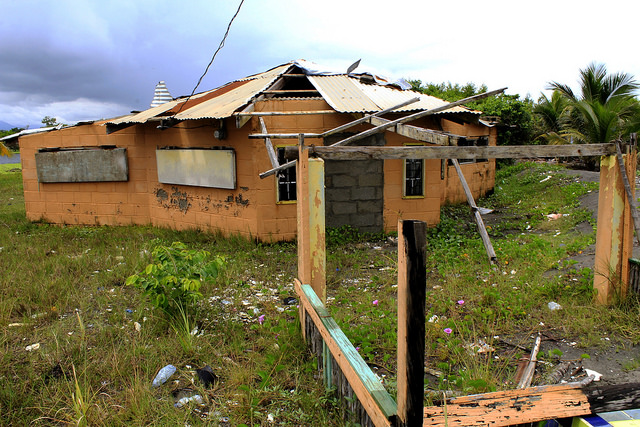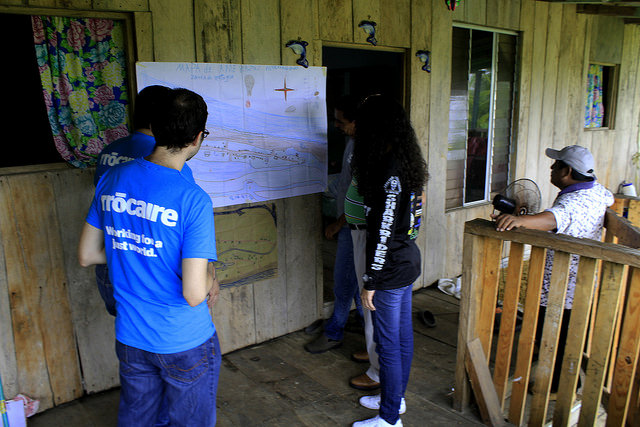Caritas says a major UN forum in Cancun, Mexico on how to better protect people from future disasters must put local communities first. Download Caritas statement.
Over 5000 delegates from governments, aid agencies and the private sector will meet at the Global Platform for Disaster Risk Reduction conference from 24-26 May in Cancun.
The forum comes in the footsteps of 2015’s Sendai Framework. Then governments agreed to substantially cut deaths and economic losses from disasters by 2030.

Rising seawater has depleted much of the coastline peninsula of Omoa, Cortés, in Honduras. Photo by Martin Calix/Trocaire
Around 11,000 people died in 2016 as a result of natural and manmade disasters. This year has witnessed some of the gravest humanitarian crises in 50 years.
Famine is predicted in Somalia, South Sudan, Yemen and Nigeria. Over 11 million Syrians have been forced from their homes due to conflict. Malnutrition is threatening Venezuela, once Latin America’s richest country.
Caritas experts from the USA, Switzerland, India, Mexico, the Philippines, Guatemala, Kenya, Uganda, Germany and Chile will be attending the meeting in Cancun. Caritas believes that a people-centred and a human rights approach are key to the effective implementation of the Sendai Framework.
“Natural disasters cannot be completely avoided, but there are ways to prevent loss of lives through strengthening countries’ and local communities’ preparedness and resilience,” said Irene Broz of Caritas Internationalis.

Trocaire (Caritas in Ireland) together with local partners put in place disaster plans for communities facing the threat of flooding. Photo by Martin Calix/Trocaire
Accountability to people affected and the participation of local communities in planning for the future are key to reducing the loss of lives and economic impact of disasters.
“Local knowledge, culture and expertise should be valued and prioritised in the design, implementation and monitoring of disaster risk reduction strategies,” said Irene Broz. “We need to invest more in resilience through partnership with the private sector.”
International human rights law can play a fundamental role in preventing and reducing the impact of disasters says Caritas. “A human rights-based approach ensures the protection of vulnerable groups exposed to the impact of natural or human-made hazards,” said Irene Broz. Full enjoyment of human rights, such as housing and a healthy environment, lead to more effective risk reduction.
For more information please contact Anastacio Agustin Casimiro in Cancun by e-mail [email protected] or call +5215548961996.
